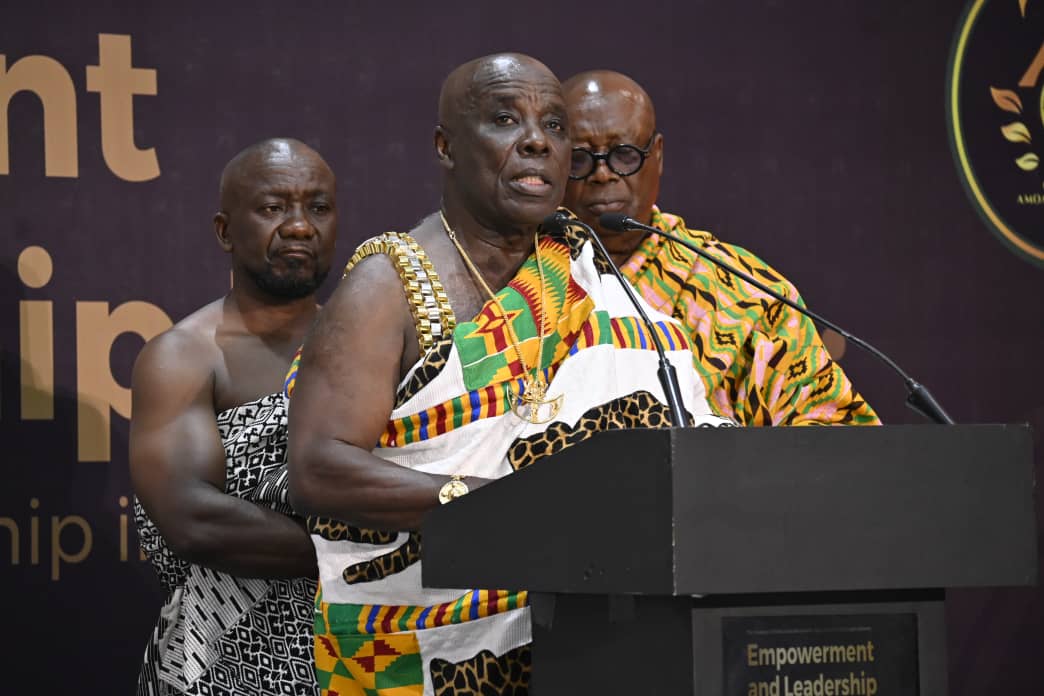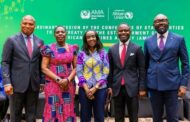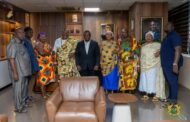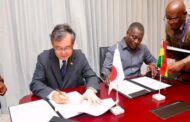The Okyenhene, Osagyefuo Amoatia Ofori Panin, has expressed concerns about the ineffectiveness of Ghana’s decentralization systems and questioned whether the current local governance structures truly promote grassroots development.
Speaking on the intended purpose of the Local Governance framework, Okyenhene highlighted that it aims to bring governance closer to the people, ensuring that local authorities are responsive to the needs and aspirations of their communities.
However, he pointed out that current practices often fall short of the constitutional mandates outlined in Articles 243(2)(b) and 251(1) of the 1992 Constitution.
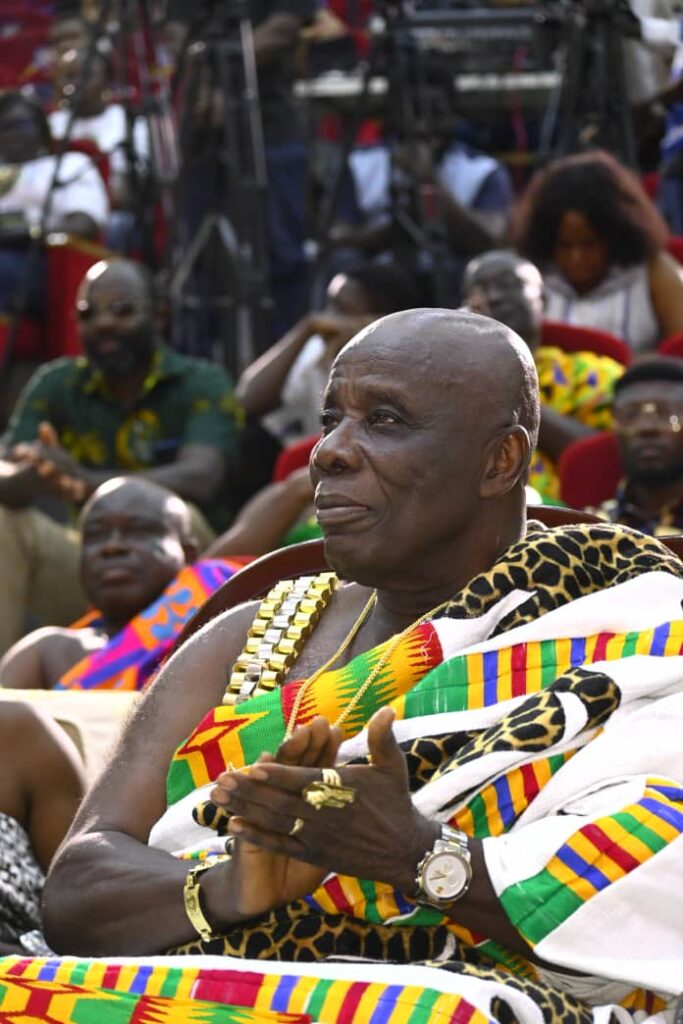
“Article 243(2)(b) stipulates that the District Chief Executive (DCE) is responsible for the day-to-day performance of the executive and administrative functions of the District Assembly. Similarly, Article 251(1) establishes the Executive Committee of a District Assembly, which is charged with performing these functions. However, in practice, the DCE often assumes roles beyond these mandates, overshadowing the contributions of assembly members who are members of the executive committee to whom these functions have been given,” Okyenhene noted.
Okyenhene said this when delivering a public lecture organized by the Graduate Students Association at the University of Ghana under the theme “Transformational Leadership in Contemporary Ghana”.
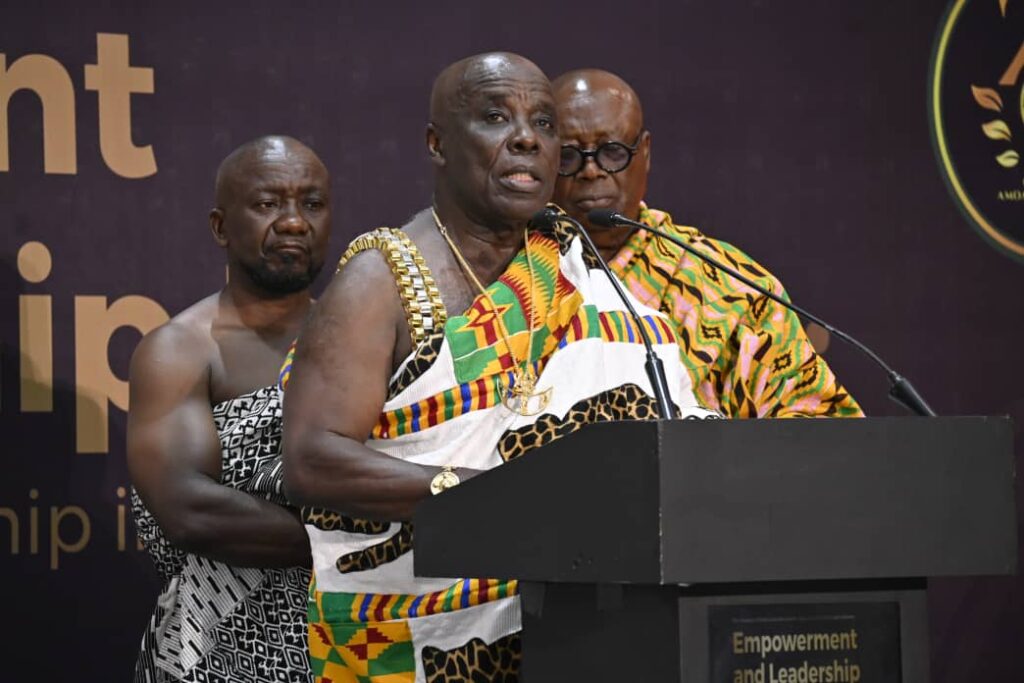
Osagyefuo Amoatia Ofori Panin also urged religious leaders to take an active role in environmental stewardship in light of the devastating effects of climate change on the global economy and human survival. He emphasized that Ghana remains a religious nation with a majority of its citizens adhering to Christianity, Islam, or traditional beliefs, all of which advocate for environmental stewardship.
Okyenhene posited that transformational leaders are passionate, energetic, and inspire a sense of commitment and purpose among followers.
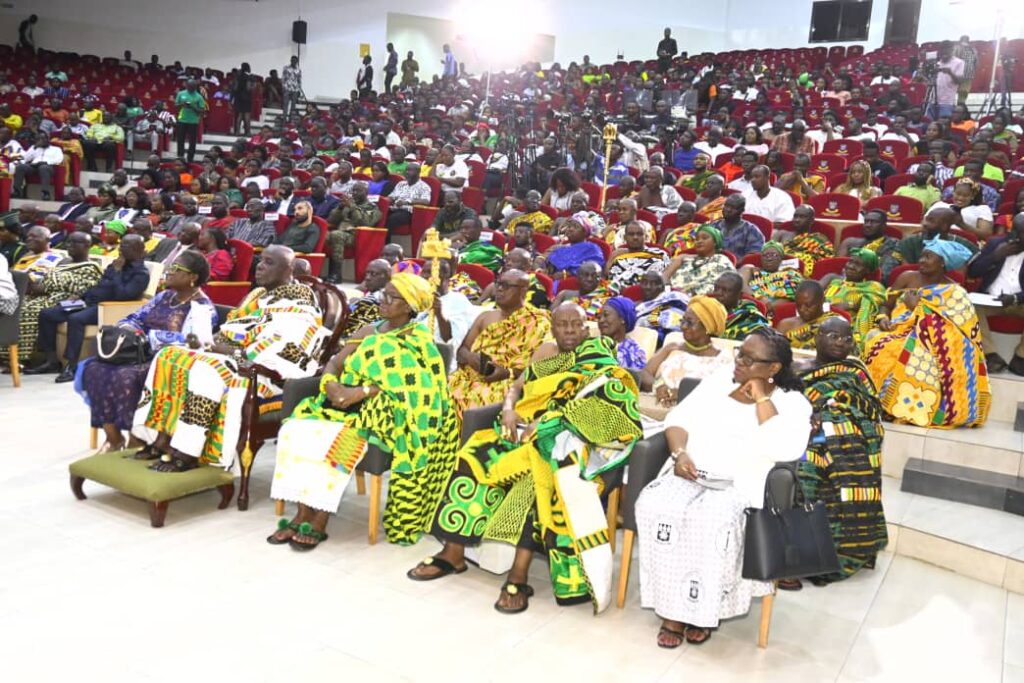
He encouraged religious leaders to inspire their followers to lead by the dictates of their religions in conserving the environment.
In Christianity, he referenced Genesis 2:15, which states, “The Lord God took the man and put him in the Garden of Eden to work it and take care of it,” underscoring the duty to nurture and protect the environment. Similarly, he cited the Quran in Surah Al-A’raf 7:31, which highlights moderation and the avoidance of waste, essential for environmental sustainability. The Prophet Muhammad (PBUH) also emphasized the importance of planting trees and preserving nature.
Furthermore, Osagyefuo drew attention to traditional beliefs, noting that the Akan people hold the Earth, known as Asaase Yaa, in high regard. Asaase Yaa is considered a deity representing the fertility of the earth and the provider of life. Traditional practices and taboos, such as the prohibition of farming on certain sacred days, reflect a deep respect for the environment and a commitment to its preservation.
Source: Mybrytfmonline.com/Obed Ansah



